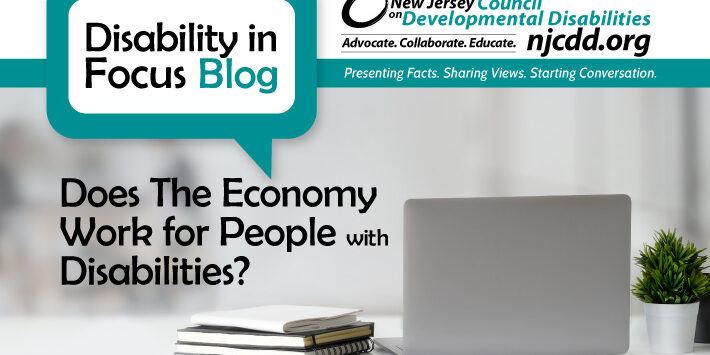By Jeremy Einbinder
Robyn D. Shulman of Forbes Magazine recently wrote an article titled “How People With Disabilities Help The Economy,” which was somehow both flattering and dehumanizing. There is a tendency for news coverage relating to people with disabilities to be merely explaining how great it is that we are normal. We are “just like everyone else,” worthy of recognition and equal social treatment compared to our able-bodied and neurotypical counterparts. We can even be a big help to “the economy.”
This is all well and good but it misses a larger point: people with disabilities are not a resource linked to how well they compare to everyone else’s norms, and they are not valuable because of their ability to (sometimes) sell their labor power to employers who are often begrudgingly willing to invest in it. We, like all working people, are people, with their own hopes, dreams, goals, passions and personal sympathies. The commodification of labor for all working people, but especially for people with disabilities and other marginalized people, takes away some essence of our human spirit.
The piece explains that in 2019, 19.3 percent of people with a disability were employed, according to the U.S. Bureau of Labor Statistics. The employment-population ratio for persons without a disability was 66.3 percent.
It is a travesty that we are so under-represented in the workforce, but the solution of hiring more of us and accommodating us is not being pitched to us. It is not a way of telling us that we can do whatever we set our minds to. This could be considered condescending drivel all its own. But it’s even worse. This tells able-bodied and neurotypical employers that they and the company they own will look good and their reputation would improve if they hire us.
It almost sounds like they’re doing us a favor and that we are tokens to them, strategic placements that will improve a company’s image. Our actual value as humans and the ability to reach our full potential is not really explored.
Shulman, an entrepreneur and certified teacher, does seem to know that it’s important that people with disabilities get to thrive in life. There is a vital intersection, she says, in promoting public education and workforce training for people with disabilities.
“Today, this discussion is gaining traction in the pandemic era—people who face unique challenges are heavily impacted by job loss, and meet insufficient support for work from home opportunities,” she explains, referring disproportionately to people with disabilities. “Although there are many programs out there, finding useful education alternatives can be hard to come by.” This is exacerbated by the fact that the economy is not doing well in general right now, in light of the pandemic.
By number, people who have disabilities are the nation’s largest minority group, further highlighting that we do, in fact need attention.
Shulman continues along that vein.
“Yet, this sector,” she says, referring to the education and workforce support sector of the economy, “already beset by insufficient funding, is one of the groups least supported by private and federal funds to ameliorate the damage COVID has caused.”
There is so little support for us as a marginalized population, so little understanding of our individual needs, especially as adults, and perhaps crucially, no employment equivalent to the practice of the Individualized Education Plan (IEP) that has become standard in public schools for students with disabilities.
An IEP offers individualized services and tools to make each student’s education as equal and effective as possible—and in the most integrated setting appropriate for each child. Obviously, with inequality still rampant within the educational realm, the standard IEP system still leaves a lot to be desired. Namely, the degree of self-determination that a student needs to forge their own scholastic path is severely lacking in the educational system, both for people with and without disabilities. However, students with disabilities, due to educators’ and sometimes parents’ biases about their abilities may be harmed more severely by such a lack of self-determination.
So, while there is a lot to improve in the educational sector, maybe it is time for an Individualized Employment Plan that can take into account workers’ needs and allow for a much larger degree of self-determination than currently exists.
The problem, obviously, is that this economy doesn’t work that way. Work doesn’t cater to workers’ needs. Rather, we are asked to take whatever opportunities, whatever jobs, whatever roles, whatever tasks the employer class may give us, or we risk becoming destitute.
In the larger scheme of things, this is not acceptable at all and workers of all abilities should struggle against exploitation wherever it is found, starting by fighting for labor rights and emphasizing the importance of collective bargaining. The advantage we have now is that apparently, in no small part due to public perception on the importance of a “diverse workforce,” the employer class is starting to think it might need us in order to look good.
So now, companies want to know how people with disabilities can be used to help the economy. We, as people with disabilities, ought to ask in turn, “How can the economy be used to help us?”
Share This Article







